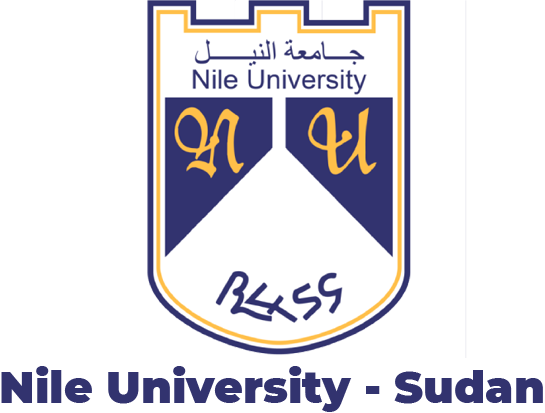Departments
Faculty of Pharmacy Departments
- Department of Pharmaceutical Chemistry.
- Department of Pharmaceutics.
- Department of Pharmacology.
- Department Pharmacy Practice & Clinical Pharmacy.
- Department of pharmacognosy.
Department of Pharmacology
About the Department
Pharmacology (in Greek: pharmacon is drug, and logos is science) is the science concerned with all aspects of the action of drugs and other chemicals on living systems. Pharmacology provides insights into key areas of health and disease, including the discovery of new therapeutic targets, the mechanisms whereby drugs elicit responses in cells, and the nature of side-effects of drugs.
Pharmacology is the multidisciplinary science bringing together several biomedical sciences such as physiology, biochemistry, pathology and cell biology to create a comprehensive framework for understanding and treating diseases.
Pharmacology is one of principal disciplines of pharmacy, is also required by other medical faculties such as Medicine, Nursing, Dentistry…. etc. in which the Pharmacology Department at Nile University (NU)collaborate with these faculties for teaching pharmacology modules and supervising student projects.
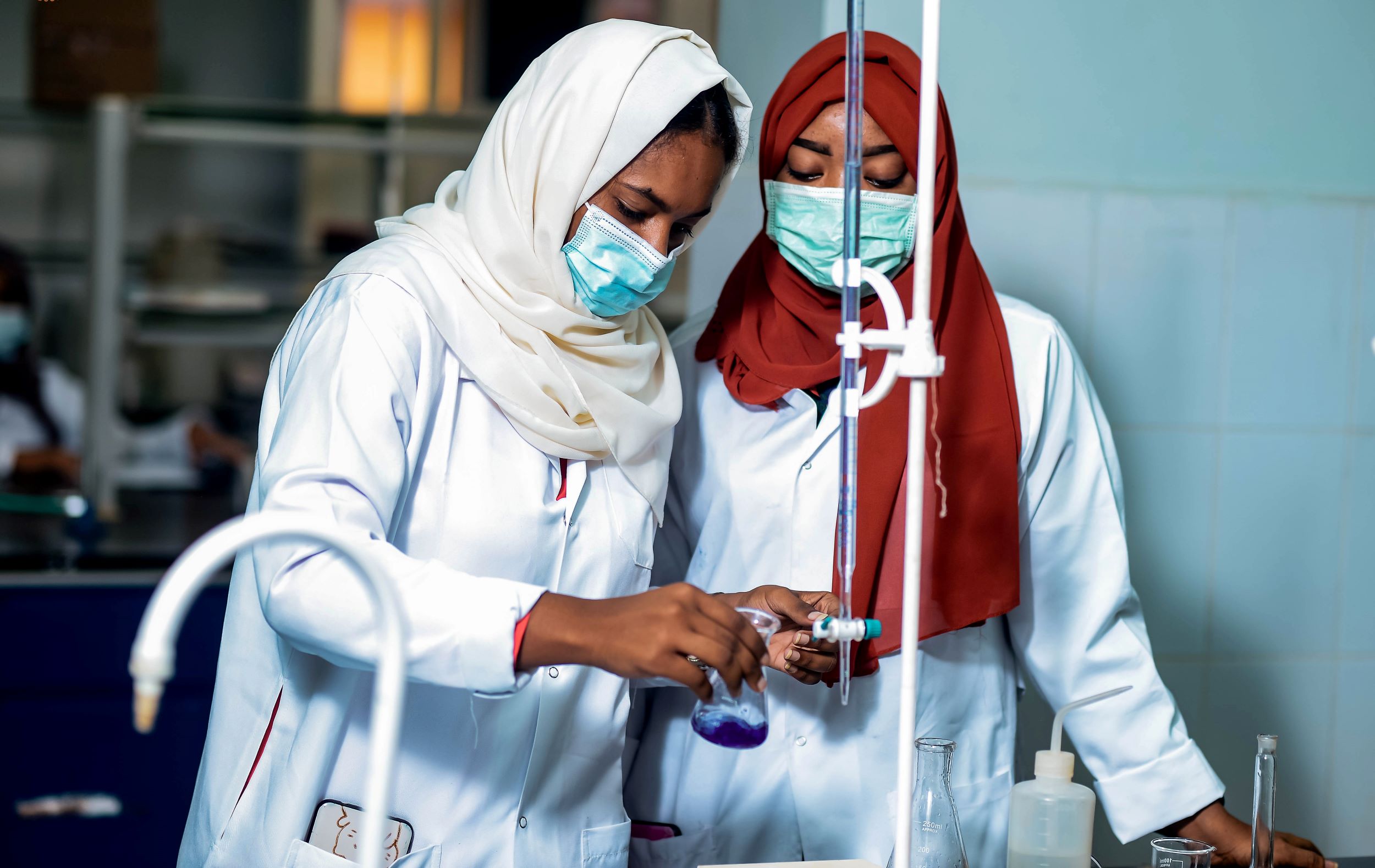
Vision
To be recognized for excellence in pharmacology research and teaching globally and beyond, also to produce highly qualified and knowledgeable pharmacy graduates skilled in field of pharmacology so that they can serve the society with ultimate goal of improving human health.
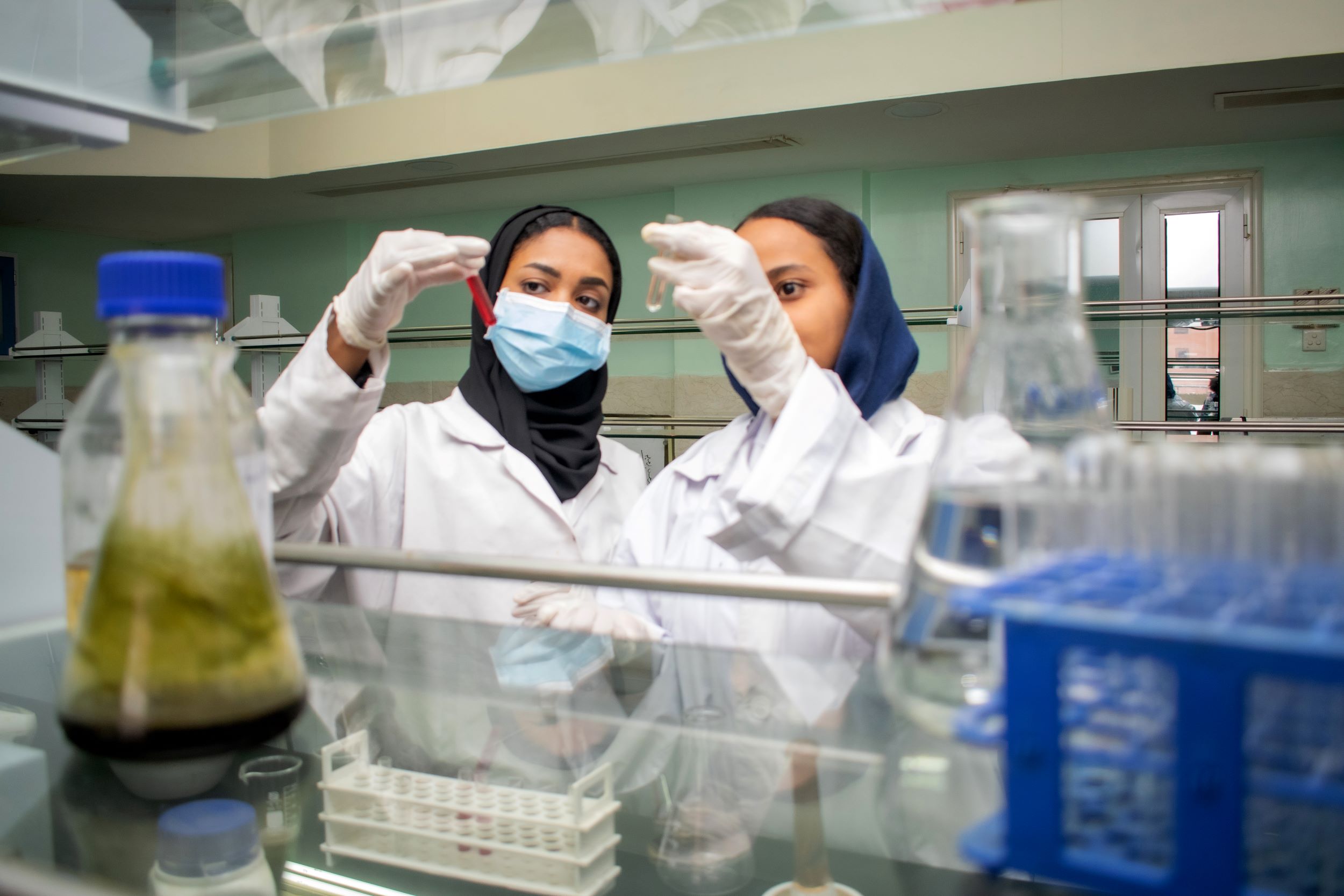
Mission
To provide top quality academic teaching in terms of fundamental principles of pharmacology, as well as contemporary drug-based therapies to treat various medical problems to undergraduate pharmacy students. With regards to the practical training and research activities in the department our mission is to conduct high impact research that improves pharmacy student’s understanding of drug actions-from molecular mechanisms to clinical translations.
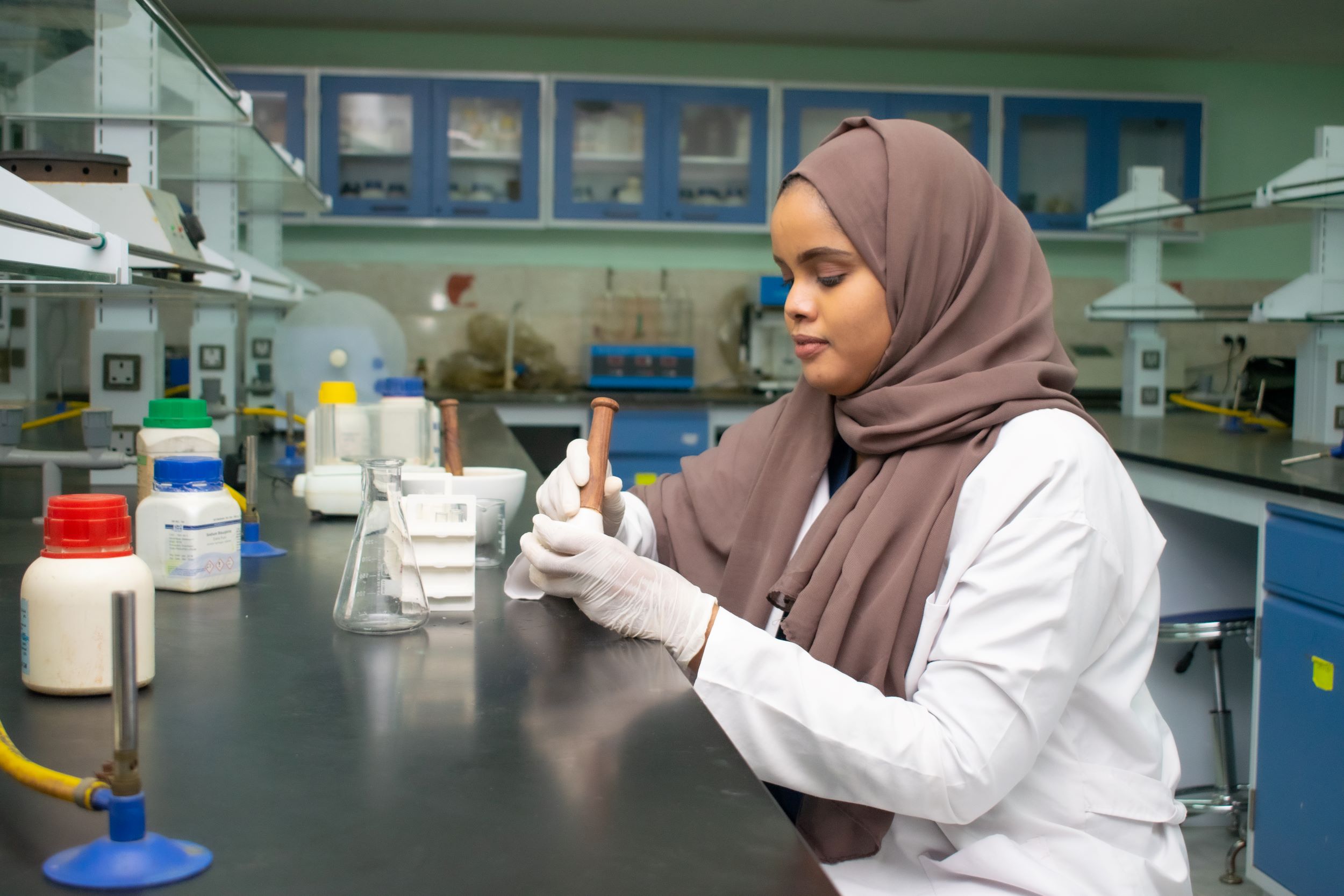
Department Values
High standards of scientific research and teaching.
Interdisciplinary research and team work.
Ongoing career development for all pharmacists.
Department of Pharmaceutical Chemistry
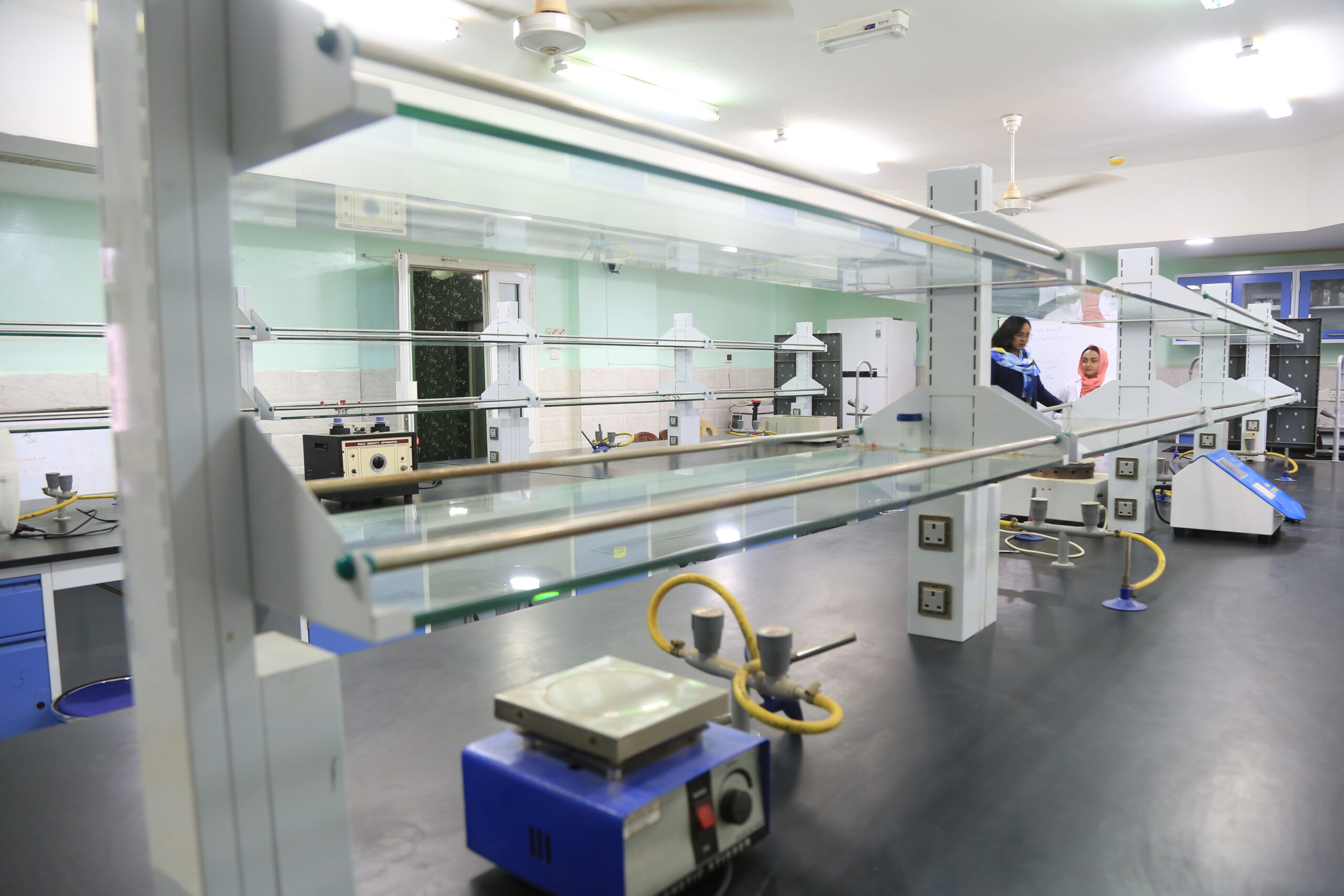
Vision
The Department of Pharmaceutical Chemistry of the Faculty of Pharmacy at Nile University seeks to keep and advance its national recognition and will lead the way toward effective global health care by developing innovative teaching practices for both undergraduate and graduate levels, advancing research and practice, and merging true entrepreneurial spirit with care and compassion. Preeminence in core areas will be strengthened in order to provide the foundation upon which pharmaceutical chemistry staff members can contribute to interdisciplinary and multidisciplinary research that addresses societal problems. The Department will distinguish itself by its innovative and successful education of students in all fields of pharmaceutical chemistry by its major research activity and its strong cross-disciplinary, interdisciplinary and multi-disciplinary collaboration both within and beyond the university.
Mission
Pharmaceutical chemistry is a core discipline within the pharmaceutical sciences. It is central in drug discovery process, mainly focusing on lead finding, lead optimization and structure activity relationship investigations, using synthetic organic chemistry, different approaches of drug design including using technologies of computer-aided drug design (CADD) as well as biochemical approaches in a transdisciplinary combination. Discovery and validation of new drug targets has also been recognized as a complementary research field, as well as state-of-the art methods of pharmaceutical imaging.
An important aspect of drug development and drug production are addressed by the pharmaceutical chemistry through the development, validation and application of methods in pharmaceutical and biopharmaceutical analysis which are absolutely essential in pharmaceutical quality management.
The Department of Pharmaceutical Chemistry at the Faculty of Pharmacy, Nile University fosters a learning-centered, research-oriented educational environment that encourages individuals to make positive lifelong contributions to national and global health. We prepare professional degree students to provide compassionate pharmacist-delivered patient care, and inspire our students through innovative problem-based learning, rich experiential curriculum, and inter-professional collaboration. We foster a community of scholars who will further the body of knowledge in pharmaceutical, biomedical, and health sciences. We strive to improve quality of life locally, nationally, and globally.
The two divisions (medicinal chemistry and pharmaceutical analysis) which constitute the Department of Pharmaceutical Chemistry represent a wide range of research fields in drug discovery, drug development, drug production and drug quality control and quality assurance. Based on this broad research expertise, there is a continuing, strong commitment to top-quality academic teaching, ensuring that the graduates, from both undergraduate and postgraduate programs, will always be recognized as the experts in health care aspects and in drug discovery design, development, production, quality and utilization.
The department provides an innovative educational environment where students learn to be independent pharmacists and scientifically literate citizens. Its undergraduate and postgraduate programs are designed to help students understand how pharmaceutical chemistry knowledge is acquired and transmitted and to produce graduates with a deep understanding of various pharmaceutical concepts, with clear, problem-solving mind and an enduring passion to learn more.
Shared Beliefs and Values
A shared set of beliefs and values underline department’s common sense of mission and provide a foundation for its vision for the future of the department.
The department believes that
Pharmaceutical chemistry is a central science in pharmacy education, uniquely positioned to address problems of great importance to the profession, economy and public policy that play a crucial role in developing interdisciplinary and multidisciplinary research thrust areas.
An understanding of pharmaceutical phenomena at atomic/molecular level is valuable and intellectually satisfying.
Chemistry literate society will be better able to make informed decisions about health, economic, environmental and public policy issues.
The department values
- Excellence in teaching and research activities.
- Creativity in generating new knowledge in pharmaceutical sciences.
- Supportive, safe and healthy learning and working environment for students, staff members and administrative staff to work together in a cooperative and collaborative manner.
- Staff members with diverse research interests that uniquely positions the department to respond to changing research opportunities.
- Integrity in all aspects of the department’s activities; not only adhering to the highest standards of moral and ethical values but striving to build an understanding of ethical practice among our undergraduate and graduate students.
- Accountability for policies, procedures and actions undertaken by staff members, students and administration in the department.
- Service to the local and global community.
Department of Pharmacy Practice & Clinical Pharmacy
The department is staffed by a group of dedicated members who are committed to achieve the department’s mission and objectives and prepare our graduates to be competent pharmacists who can improve patient’s life.
The department offers several courses covering clinical, community and hospital pharmacy
It aims to introduce the student to clinical pharmacy practice; develop skills integrated with knowledge which enable students to improve the community health care.
Students will be equipped to promote, develop, and assess pharmacy practice within their profession, which will be direct benefit to health services and to the patients they serve.
Objective
- To Equip the student with knowledge, skill and practice to assess drug therapy for effectiveness, safety, compatibility and patient acceptability, and use this information to make effective interventions and monitor their outcome
- To Increase the student’s confidence in their ability to contribute to patient care as part of a multi-disciplinary healthcare team
- To enable the student to identify common minor illnesses that can be treated in the pharmacy.
- To enable the student to identify major diseases that should be referred to the physician.
Department vision
Pharmacy graduates to be an integral member of the healthcare team responsible for the outcomes associated with medication use process.
Department Mission
The mission of the department is to prepare the pharmacy students for their professional services in various health care settings.
External relationship:
Pharmacy Practice and Clinical Pharmacy Department holds relationships with Ibn-Sena Hospital and Al Ban Gadeed hospital for training pharmacy students in hospital settings. In addition, the department provides training in various community pharmacies in Khartoum state.
Department of Pharmaceutics
Mission
Pharmaceutics department excellence is demonstrated by the quality of curriculum and instruction, student performance, and faculty professional accomplishments.
Our mission to render professional skill, knowledge, abilities to serve in pharmaceutical industries and to provide appropriate medication service to the patient. The curriculum philosophy aims to provide ability to deals with the practical aspects of manufacturing, formulation and evaluation of various pharmaceutical dosage forms and their physicochemical and biopharmaceutical aspects.
The subject also helps the students to acquire knowledge and skill to apply quality assurance principles, including legal and ethical aspects involving drugs, delivering a quality assured product as per the pharmacopoeia, current Good Manufacturing Practices (CGMP), WHO and ISO standards.
Vision
Graduate and postgraduate education programs address ongoing and arising critical translational and operational issues in pharmaceutical R&D and manufacturing.
Core values
- Interprofessional collaboration
- Integrity
- Innovation
- Discovery
- Educational excellence
- Leadership
- Diversity
- Professionalism
Department of Pharmacognosy
Vision
To be a distinguished department in research and education of pharmacy for students in the field of Pharmacognosy locally and regionally.
Mission
To meet the needs of the faculty in providing high quality education, research and service opportunities in the discipline of Pharmacognosy.
Pharmacognosy is the oldest medical science since the days when pharmacognosists were physicians themselves. It is one of the five major areas of pharmaceutical education, an interdisciplinary subject which include parts of botany, organic chemistry, biochemistry, pharmacology, zoology, anthropology, geography, ethnomedicine, nutraceuticals, cosmeceuticals, biotechnology etc. This discipline covers wide range of topics such as sources of natural products, their chemical composition, medicinal value, distribution, ethnopharmacological profile, biosynthetic pathways, isolation, evaluation, quality control, standardization etc. Pharmacognosy learning encompasses identification of plant drugs, phytochemistry, extraction methods, separation, purification, identification and structure elucidation of natural products, phytotherapy, biologics, allergens, nutraceuticals, cosmeceutical and toxic manifestation of natural products.
